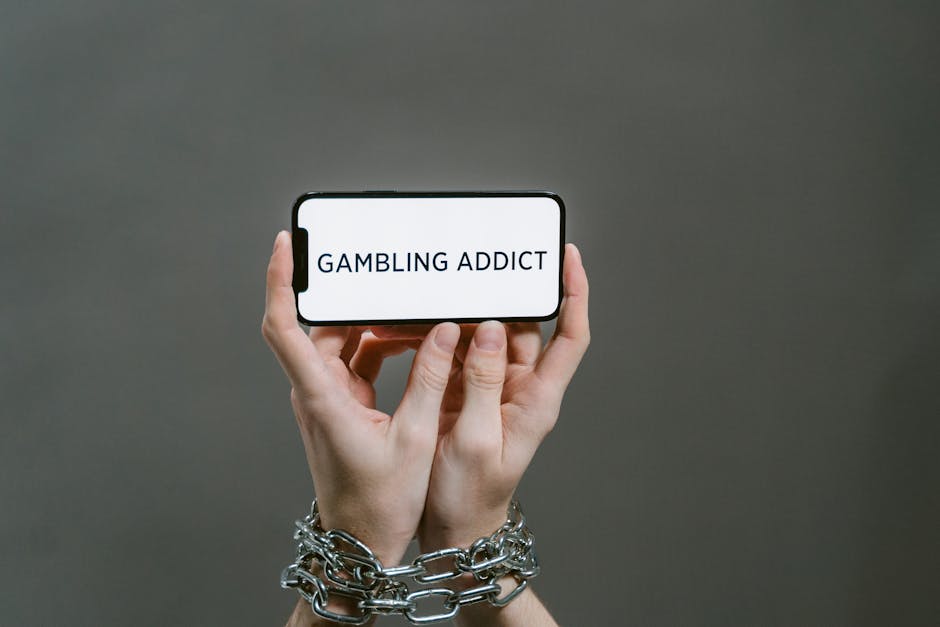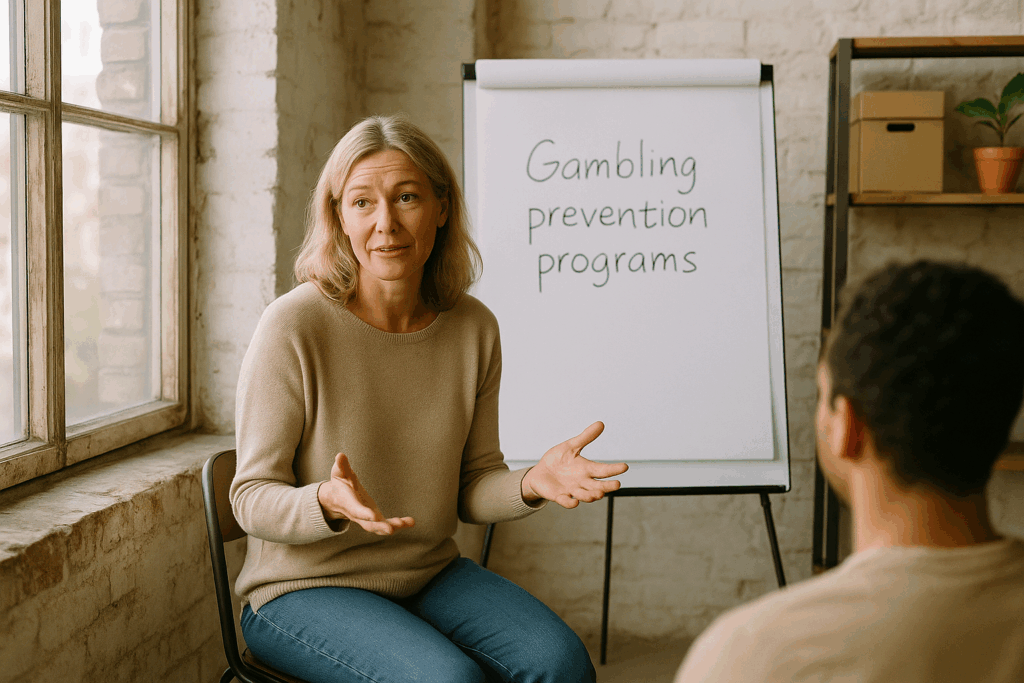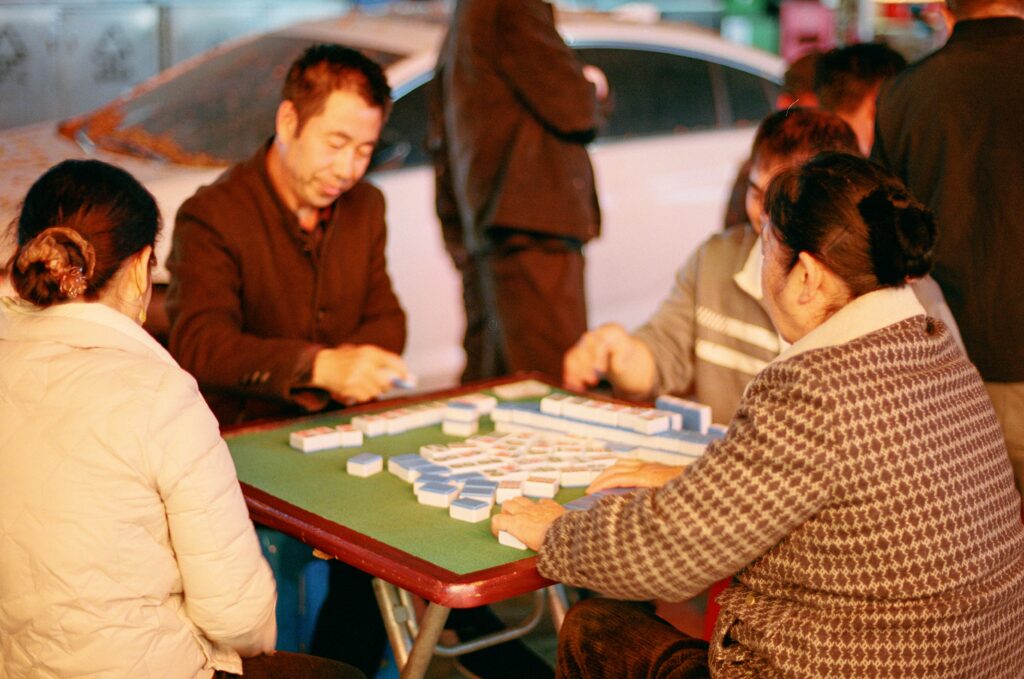Why Early Detection Matters
Gambling addiction isn’t just a personal issue—it’s a public one. As digital platforms make betting more accessible than ever, cases of compulsive gambling are climbing. What used to require a trip to the casino now fits in your pocket, always on, always tempting. This constant access is feeding a silent rise in addiction rates, and many cases go unnoticed until they’ve already caused serious damage.
Ignored warning signs don’t disappear—they multiply. Debt racks up, relationships erode, and mental health takes a hit. By the time the problem is recognized, it’s often tangled up with a web of money troubles and emotional stress. That’s why early detection isn’t optional; it’s critical.
The first line of defense is awareness—knowing what to look for in yourself or someone close. But individual awareness isn’t enough. Friends, family, and communities need to stay alert too. A passing comment, a shift in behavior, or changes in spending habits can all be red flags worth a second glance. Spot it early, speak up early—that’s how you create room for recovery before crisis hits.
Common Behavioral Red Flags
Problem gambling rarely starts with a meltdown—it creeps in. One of the earliest signs is someone spending more and more time gambling. Not just for entertainment or the odd Friday night poker game, but pushing aside work, social life, or family obligations to make time for it. It starts with canceling plans. Then missing deadlines. Eventually, gambling becomes the main character, and everything else gets demoted.
Losses don’t slow things down—they accelerate the spiral. Chasing losses is when a person throws good money after bad in hopes of winning it all back. It’s not about strategy. It’s about desperation. And it almost never pays off.
Then comes the cover-up. People lie about how much they’re gambling or how much they’ve lost—not always outright, but by omission, making excuses, or shifting blame. It’s easier than facing the truth, even with themselves.
The emotional side hits hard too. Irritability, mood swings, feeling wired or listless when they can’t place a bet—these are more than bad days. They’re symptoms of dependency creeping in.
Spotting these red flags early isn’t about labeling someone—it’s about getting ahead of something that’s only going to get harder to fix.
Financial Warning Signs
When gambling starts to take a toll on someone’s bank account, the red flags aren’t hard to spot—if you’re paying attention. A common early sign is financial stress that doesn’t quite add up. There’s a sudden tightness around money, and no clear reason why. Bills go unpaid. Credit card debt grows. Savings vanish.
Then there’s the borrowing—quiet, vague, and often awkward. People might ask for small loans without explaining why. Or say they “just need a little help this month.” Over time, these requests may become more frequent or desperate.
Some individuals also start selling off personal belongings. It could be electronics, collectibles, even things with emotional value. The goal is fast cash, often for another round at the tables or online.
At its worst, gambling rewires priorities. Rent money turns into bet money. Groceries get replaced by “just one last chance.” When essential expenses are sidelined for the next wager, it’s no longer just a bad habit—it’s a warning signal.
Spotting these shifts early can make all the difference. They’re not just about money—they’re about someone caught in a pattern they can’t see clearly or escape easily. And it’s often the people closest to them who notice first.
Psychological and Emotional Cues
Not all signs of gambling addiction show up in a bank account. Some of them live entirely in your head. One big red flag is obsessive thinking—if your mind constantly loops on upcoming bets, odds shifts, or winning streak strategies, it’s not just passion. It’s preoccupation. That mental clutter can eat away at other parts of your life before you even notice the damage.
Then there’s the emotional side. Many people lean on gambling as an escape from stress, loneliness, or depression. It offers a rush, a distraction, even hope for a quick fix. But when gambling becomes the main coping mechanism, problems tend to pile up instead of disappearing. And those emotional highs and lows? They’re real. Wins can bring euphoria, but losses often trigger anger, despair, or burnout. If your mood swings ride alongside your bank balance, it may be time to step back and take a hard look.
Gambling addiction doesn’t start with an empty wallet. It often starts in the mind—with tunnel vision, emotional avoidance, and rewards that feel just out of reach.
Social Impacts to Watch
When someone starts pulling away from their usual social circle, it’s often a red flag. Isolation—especially from close friends or family—isn’t just about needing space. It can signal that a bigger issue, like gambling addiction, is taking hold. People grappling with this might dodge social events, avoid conversations, or disappear for long periods without explanation. It becomes easier to hide the habit when no one’s asking questions.
Work and school tend to crumble quietly at first, then fast. Missed deadlines, zoning out in meetings, slipping grades—these aren’t just random mistakes. They’re often fallout from sleepless nights, financial stress, or the mental toll of compulsive gambling. The person may still show up physically but struggle to stay engaged.
And then there are hobbies—the things that usually energize or relax us. Someone deep in gambling addiction might lose all interest. Activities they once loved become distractions from their fixation. It’s not just about time—it’s about priorities shifting in a way that leaves less room for joy outside the next bet.
These changes can be subtle or stark. Either way, they shouldn’t be brushed off.
When and How to Intervene
If you’re worried about someone’s gaming or gambling habits, bringing it up is tough—but necessary. The first rule: don’t ambush. This isn’t about proving a point or forcing a confession. Start with concern, not confrontation. Stick to facts—missed appointments, sudden money issues, mood swings—and speak in simple terms. “I’ve noticed…” goes a lot further than “You need to stop.”
Avoid labeling them as an addict, even if the signs seem obvious. Nobody wants to feel judged or cornered. Instead, open the door for conversation. Ask how they’re feeling, how things have been lately. Listen more than you talk. If they shut you down, back off a bit—but don’t disappear completely. Consistency matters.
Early conversations are golden. The earlier someone recognizes a pattern, the better the odds of course correction before the spiral deepens. Many people in recovery say they started to turn things around after one honest talk with a friend who didn’t attack, but simply cared.
You’re not there to fix them. You’re there so they know they’re not alone.
Tools and Support Systems
If you’re questioning whether gambling has taken a bigger role in your life than it should, start with tools that help you step back and assess the situation. Free self-assessment questionnaires are a solid first move. These aren’t diagnostic tools, but they can flag patterns—like chasing losses, betting more than intended, or hiding gambling habits—that are worth paying attention to. Sites like GamCare and the National Council on Problem Gambling offer easy, confidential access to these quizzes.
If the results raise concern—or even if you don’t take a quiz but just feel off—it’s time to talk to someone. Professional help comes in different forms, depending on what you need. Therapists who specialize in addiction can offer clarity and action plans. Hotlines are available 24/7 if you need to talk immediately, and they’re often the fastest way to get pointed toward solid next steps. Support groups like Gamblers Anonymous create community with people who’ve been there, which can make all the difference when the goal is lasting change.
Self-help is the start, but long-term progress often involves building a system around yourself. For a deeper look at one effective option, check out The Role of Self-Exclusion Programs in Responsible Gaming.
Final Thoughts
Gambling addiction rarely kicks the door in. It creeps. One bet turns into two, a quiet habit becomes routine, and before long, the line between casual play and harmful compulsion blurs. That’s why awareness—early, honest, and ongoing—is your strongest defense.
The warning signs aren’t just about lost money. They show up in cancelled plans, strained relationships, irritability, or losing interest in everything else. These red flags affect more than one person; they ripple outward and touch families, jobs, and communities in ways that aren’t always visible right away.
So if you’re wondering, even privately, “Is this a problem?”—that’s not a question to ignore. It’s a signal worth listening to. Looking closer now beats cleaning up damage later. Awareness isn’t weakness. It’s step one.


 Thalara Kelricsona is the co-founder of mediagamblesaga and a key voice in its content direction. With a unique blend of creativity and industry knowledge, she explores the intersection of technology and user experience in gambling. Her forward-thinking approach ensures the site remains a trusted resource for readers seeking clarity on the fast-changing digital gambling landscape.
Thalara Kelricsona is the co-founder of mediagamblesaga and a key voice in its content direction. With a unique blend of creativity and industry knowledge, she explores the intersection of technology and user experience in gambling. Her forward-thinking approach ensures the site remains a trusted resource for readers seeking clarity on the fast-changing digital gambling landscape.

